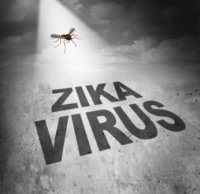Will Hermine Spread the Zika Virus?
By Kris Powers | September 6th 2016Those of us in Florida and all the way up the east coast recently felt the effects of Hurricane Hermine. In Florida, now that the storm has moved on, we are left with concerns about the spread of the Zika virus from the standing water left behind.
Any area with standing water creates a prime habitat for mosquitoes to lay their eggs - raising the risk of spreading the Zika outbreak, which has hit small pockets of Miami-Dade County in the southern part of the state.
Hours after Hurricane Hermine made landfall in Florida, Gov. Rick Scott urged the public to remove any standing water to help stop the spread of the mosquito-borne Zika virus.
Credentials: An Important Piece of the Puzzle
By Kris Powers | August 30th 2016To increase their chances of succeeding in today’s ever evolving job market, students of all ages are expressing the desire to quickly close any personal skills gaps and show aptitude in a variety of subject matters.
Are You Ready to Take Your Learning Online?
By Kris Powers | July 13th 2016More and more students are taking online classes because of the flexibility and convenience they provide.
Multitasking and the Online Student
By Kris Powers | June 21st 2016For online students, the temptation to be “logged in” to multiple accounts at one time can be great.
Ready to Start Working Towards Your Degree?
By Kris Powers | May 24th 2016Ed4Online created Ed4Credit to assist people in obtaining their dream of a college degree. Ed4Credit offers a completely affordable opportunity for students to start their evolution through education.
Lifelong Learning
By Kris Powers | May 10th 2016“Make the most of yourself....for that is all there is of you.”
― Ralph Waldo Emerson
Lifelong learning is about seeking or creating learning opportunities for both personal and professional development. Lifelong learning is important because it applies to everything that we learn throughout our life, not just what is learned in a classroom. Learning allows us to make better, informed decisions. It enhances our understanding of the world around us, betters our social skills and our increases our personal development. Lifelong learning also assists us in becoming more successful in our careers as advances in technology require that we learn something new each and every day in order to keep our skills current in the workplace.
7 Tips to Boost Productivity in the Morning (and all day long!)
By Kris Powers | January 19th 2016What is the best way gain control over your morning hours for peak performance?
A Healthy Lifestyle Can Benefit Your Education
By Guest Blogger | December 8th 2015Going back to school can be a big change in your life. Suddenly you have to make time and adjust to either going to class or attending an online course. This change in routine can lead to a change in habits. Primarily it’s the healthy habits that get the boot out the door. It doesn’t have to be this way. There are three areas that you can make small efforts to maintain a healthy lifestyle that will not only make you feel better but will actually benefit you in your education as well: sleep; nutrition; and exercise.
SLEEP
Going Back to School has Never Been Easier!
By Kris Powers | November 10th 2015Why do some students start and stop their college education?
According to "With Their Whole Lives Ahead of Them", a survey designed to compare students who started, but didn't finish, their college education with those who received a degree, of the students who did not complete their college studies:
-
54% needed to work to support themselves or families and could not balance work and classes
-
31% could not afford college
A long-time proponent of helping adults pursue and complete degrees, The American Council on Education (ACE) has organized the Alternative Credit Project™ (ACP) to create a more flexible pathway towards post-secondary education attainment for the more than 32 million non-traditional students who may have some college credit but no degree.
Helping Nontraditional Learners Gain College Degrees & Credentials
By Kris Powers | October 27th 2015Have you taken some college courses but have not earned a degree or certificate yet? Have you thought about going back to school, but feel overwhelmed by the cost and complexity of the process? You are not alone. An estimated 32 million nontraditional students across the nation have some college experience but no degree to show for it, according to the American Council on Education. Many of these students may want to pick back up and start again, but aren’t sure how to go about it.









